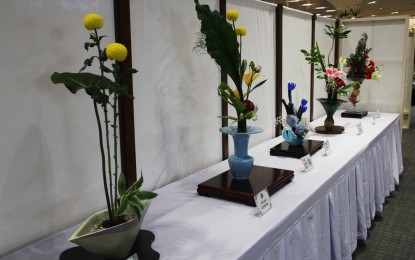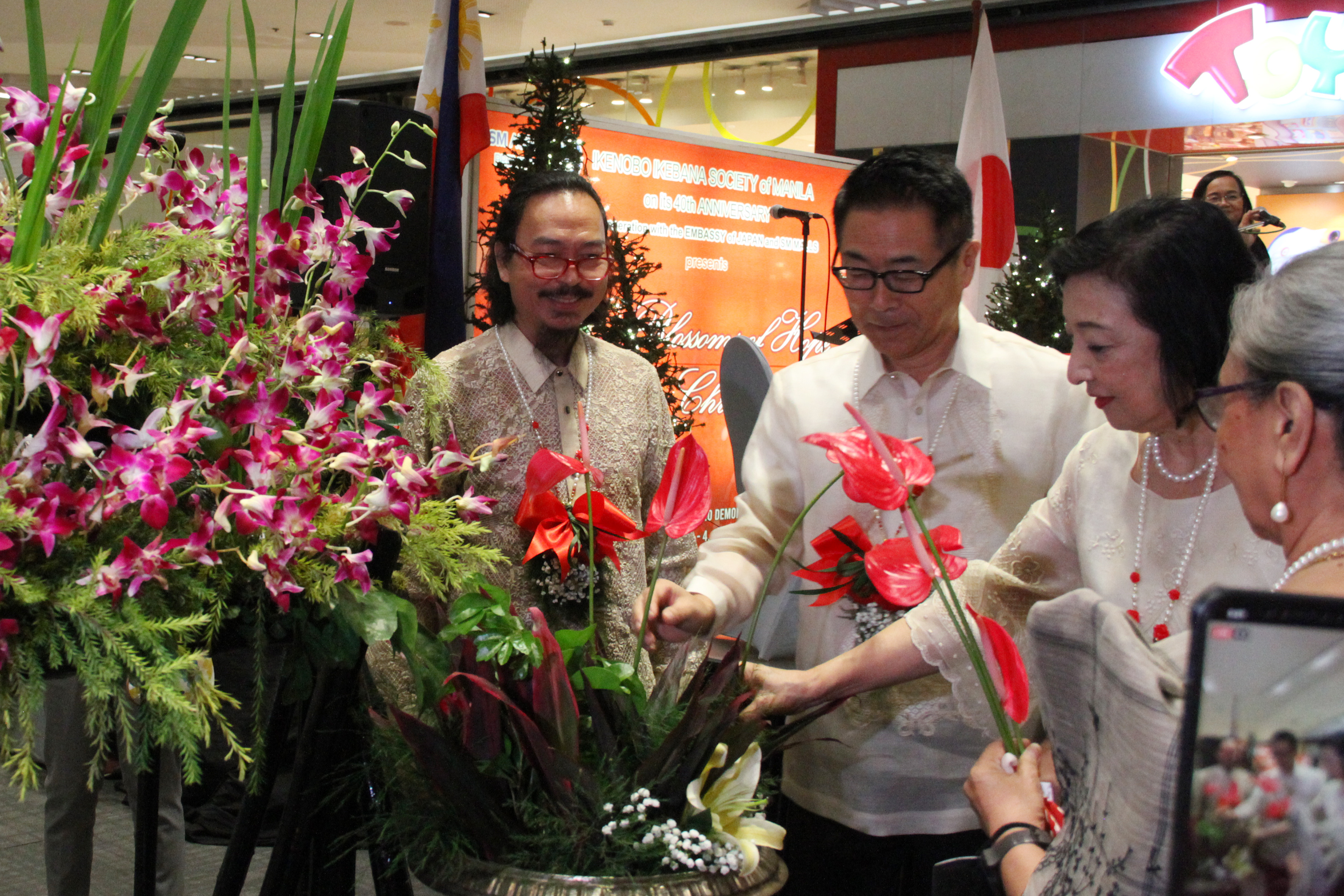
FLORAL ART. The ikebana floral arrangements by members of the Ikenobo Ikebana Society of Manila are on display at SM Aura in Taguig City on Friday (Dec. 2, 2022). The centuries-old ikebana is a refined art that places much reverence on plants removed from nature and brings new life to it. (PNA photo by Jesus Escaros)
MANILA – From the process of carefully curating what flowers and leaves to use down to the philosophy that brings the pieces into one structured floral art, just about anything related to Ikebana brings anyone closer to nature.
This is one of the reasons Maria Theresa Calunsod, president of the Ikenobo Ikebana Manila Chapter 67, was able to sustain her passion for the traditional Japanese flower arrangement for more than 20 years.
Now, the organization she leads has grown into a 40-plus-member group, teaching Filipino enthusiasts the ikenobo method of ikebana.
"It has become our hobby. We don't earn from it, we just enjoy it. It's very minimalist. With only two or three materials, you can already create a very nice arrangement," she said in an interview on the sidelines of the Blossoms of Hope Ikenobo Ikebana exhibit in Taguig on Friday.
"When you finish arranging one, it's very fulfilling, nakakawala ng (it eases) stress," she added.
The centuries-old ikebana is a refined art that places much reverence on plants removed from nature and brings new life to it.
There are more than a thousand flower arrangement schools in Japan but the oldest is Ikenobo, which takes on the traditional concepts of ikebana.

"Ikenobo believes that the form created by the life of plants is the root of beauty and that there is 'harmony' there. In other words, 'harmony' means that the lives of plants and trees encounter the sun, rain, and wind every day, and change into new forms," Japanese Ambassador Kazuhiko Koshikawa shared.
"It is the heart and philosophy of Ikenobo flower arranging to find beauty in worm-eaten leaves, withered leaves, and dead branches, as well as fresh young leaves and colorful flowers," he said.
Moreover, the envoy expressed hope that this tradition would further bridge the Filipino and Japanese people.
Koshikawa said he appreciates that many Filipinos practice ikebana, using plants native to the Philippines, and "incorporate Filipino sensibilities" into a Japanese tradition. (PNA)
